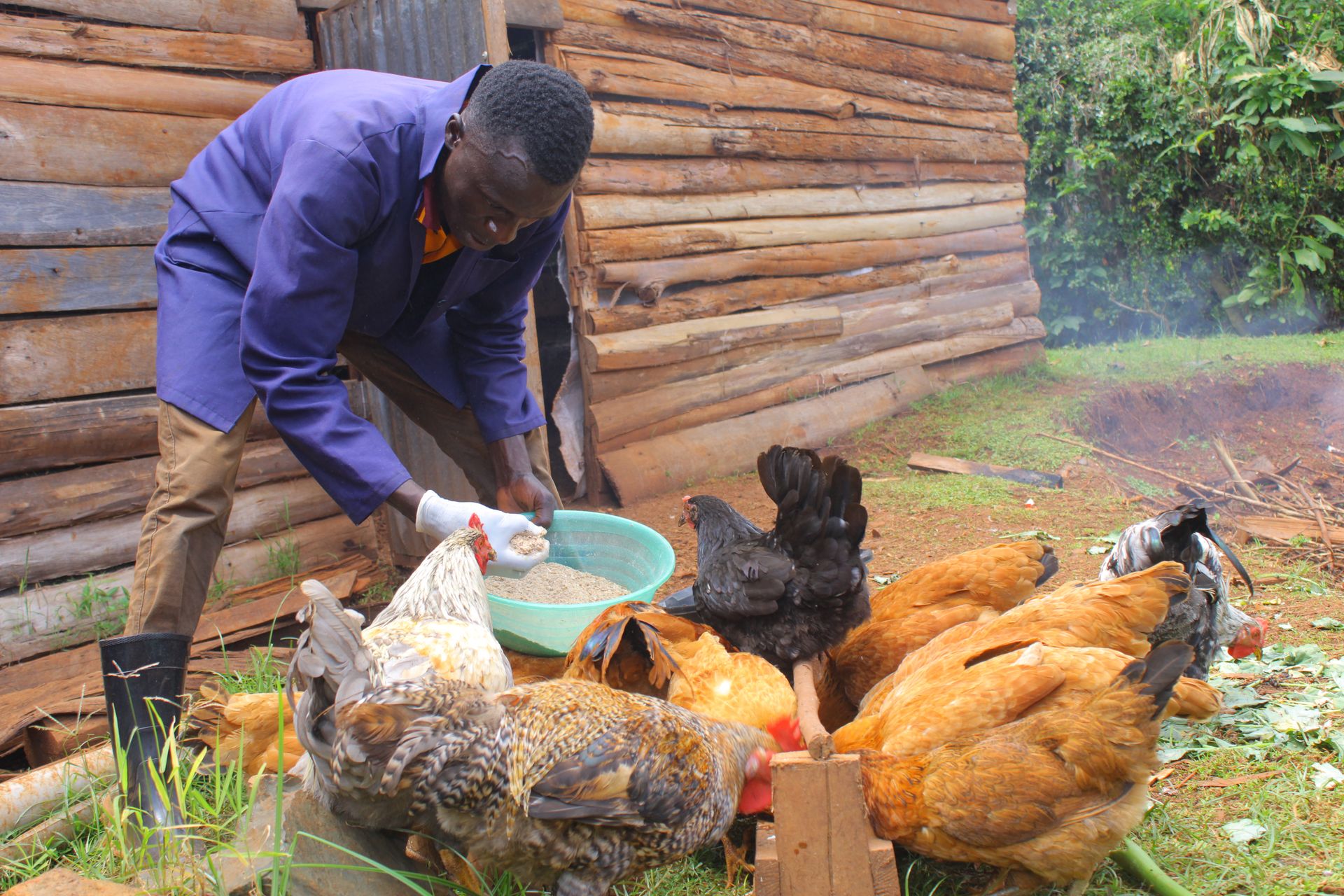"Never doubt that a small group of thoughtful, committed citizens can change the world. Indeed, it is the only thing that ever has."
This quote resonates deeply with the mission of Zaida Agri-Solutions, an innovative organization dedicated to transforming the agricultural landscape in Kisii County, Kenya. Borne out of a pressing need to address climate change and waste management, Zaida Agri-Solutions is leading the charge in regenerative agriculture and youth empowerment.
A Vision Born from Challenge
The story of Zaida Agri-Solutions began with a powerful realization by Lawrence Juma, the organization's founder and current CEO. Upon moving to Kisii County, he was struck by the sight of overflowing garbage and the resultant environmental mess that permeated the town.
"The stench from this environmental mess compelled me to think of what could be done as a remedy," Juma recalls. "My turning point was when I realized that the organic waste could be transformed into a solution through regenerative practices like Black Soldier Fly farming."

Image courtesy of The Standard.
This experience was more than just a visual shock: it was a call to action. Juma's observation aligns with broader research on waste management challenges in developing countries. For instance, a study by Guerrero et al. (2013) highlights how inadequate waste management in developing countries leads to environmental degradation and public health risks.
Turning Waste into Wealth
Zaida Agri-Solutions is a game-changer for local farmers, particularly through the promotion of Black Soldier Fly (BSF) farming. This innovative approach not only addresses waste management but also generates income for families.
The potential of Black Soldier Fly is supported by scientific research. For example, a study by Chia et al. (2018) demonstrated that BSF larvae can convert organic waste into high-quality protein for animal feed, offering a sustainable alternative to traditional feed sources.
One of our most inspiring stories comes from a group of young women farmers in Kisii who, after receiving training and starter feedstock from Zaida, started their own BSF farm. Not only have they created a sustainable source of income, but they have also become advocates for waste management and climate action in their community.
Empowering the Next Generation
Youth empowerment is at the core of Zaida’s mission. Juma’s passion for working with young people is evident in his belief that the younger generation holds the key to solving today’s challenges.
"I have always seen the immense potential in young people to innovate and lead, especially in sectors like agriculture," Juma asserts.
This approach aligns with research on youth engagement in agriculture. A study by Mwaura (2017) found that engaging youth in agriculture can lead to increased productivity and innovation in the sector.
By equipping youth with the necessary skills and knowledge for sustainable farming, Zaida aims to create a ripple effect that benefits entire communities.
Challenges and Resilience
Despite its successes, Zaida Agri-Solutions faces significant challenges. Juma identifies two major hurdles:
- Changing community mindsets about waste
- Securing the capital required for scaling operations.
"Transforming waste from a problem into a valuable resource requires investment, education, patience, and persistence," he explains.
Additionally, balancing climate action with ensuring that solutions are accessible and scalable for smallholder farmers has been an ongoing struggle. These challenges are not unique to Zaida; a review by Njenga and Mendum (2018) identified similar barriers to adopting circular economy practices in African agriculture.
Looking Ahead
To overcome these challenges and achieve its goals, Zaida Agri-Solutions is seeking support from stakeholders, partners, and investors. Juma outlines their objectives:
- Short-term goal: Expand training programs to reach more farmers and youths across Kenya.
- Short term goal: Scale up waste management operations to process more organic waste into valuable products like organic feed and fertilizers.
- Long term goal: Create a self-sustaining ecosystem that brings together capital, farmers, markets, and youth-led businesses to build a resilient and regenerative food system.
Jacob Ochieng demonstrating sustainable poultry feeding at Zaida's demo farm.
The funds from donors, volunteers, investors, and partners will be instrumental in supporting Zaida’s:
- Training programs
- Scaling waste management operation
- Investing in research
- Innovating new products.
This support will enable Zaida to reach more communities, create jobs, and drive sustainable change on a larger scale.
"The journey of transforming waste into opportunity is not just about solving an environmental issue but about creating a more sustainable and prosperous future for all." — Lawrence Juma.
For more information about Zaida Agri-Solutions and how you can get involved, visit https://www.zaidagrisol.org.
References
Chia, S. Y., Tanga, C. M., Osuga, I. M., Alaru, A. O., Mwangi, D. M., Githinji, M., ... & Fiaboe, K. K. M. (2018). Effect of dietary replacement of fishmeal by insect meal on growth performance, blood profiles and economics of growing pigs in Kenya. Animals, 8(10), 168. https://doi.org/10.3390/ani8100168
Guerrero, L. A., Maas, G., & Hogland, W. (2013). Solid waste management challenges for cities in developing countries. Waste Management, 33(1), 220-232. https://doi.org/10.1016/j.wasman.2012.09.008
Mwaura, G. M. (2017). Just farming? Neoliberal subjectivities and agricultural livelihoods among educated youth in Kenya. Development and Change, 48(6), 1310-1335. https://doi.org/10.1111/dech.12342
Njenga, M., & Mendum, R. (2018). Recovering bioenergy in Sub-Saharan Africa: Gender dimensions, lessons and challenges. International Water Management Institute (IWMI). CGIAR Research Program on Water, Land and Ecosystems (WLE). https://doi.org/10.5337/2018.226

Zaida Agri-Solutions: Transforming Waste into Wealth in Kenya